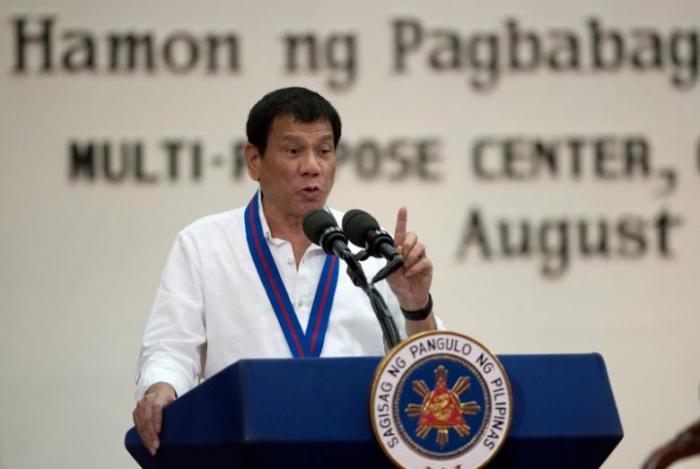Philippines freezes bank accounts of Christian organization critical of Duterte

The Philippine government has frozen the bank accounts of a church organization critical of President Rodrigo Duterte's administration for “probable cause,” alleging they are “related to terrorism financing.”
UCA News reports that the government’s Anti-Money Laundering Council ordered a 20-day freeze on three of the Rural Missionaries of the Philippines' accounts with the Bank of the Philippine Islands.
In December 2019, the AMLC also ordered the bank to submit details of related bank accounts and proposed the filing of a petition before the Court of Appeals to extend the freeze order to six months.
In a statement, the RMP expressed its “utmost dismay” with the council, saying that the decision “greatly encumbers our mission to collectively witness and act as Christ’s disciples with the rural poor.”
“We vehemently deny involvement in any form of financing terrorism,” it said. “Donations and funding received by the RMP are used to implement projects and programs to help the marginalized and oppressed. In contrast to the government’s false narrative, RMP has delivered much-needed services to rural communities across the country for 50 years. We have our mission and community partners to confirm this.”
The group, established on Aug. 15, 1969, as a mission partner of the Association of Major Religious Superiors, said it has been repeatedly accused by government security officials of having links with communist rebels.
“We’ve been accused of being a communist and terrorist front. Our members have been harassed and threatened, forcing some of them to seek sanctuary elsewhere,” read the group’s statement.
In the southern Philippine region of Mindanao, schools run by the organization have been recently closed. Several senior RMP members have also been charged with various crimes including perjury, arson, kidnapping, and robbery.
In its statement, the group said that "helping the poor, as Christians living out concretely your faith imperative and following the church mandate to establish the Church of the Poor, will put your liberty and life at risk."
Despite pushback, the group vowed to “live out its commitment to be servant-leaders with the poor farmers, fisherfolk, agricultural workers, and indigenous peoples so that all may truly experience God’s compassion and mercy in the here and now.”
RMP has openly criticized Duterte over his “war on drugs” that has led to the deaths of over 12,000 Filipinos, mostly urban poor. The group has accused the Philippine leader of contributing to the “worsening poverty and intensifying violence” in the Philippines.
Last year, the Association of Southeast Asia Nations issued a report warning against Duterte’s continued effort to erode the country's democratic institutions with an "unprecedented crackdown" on critics.
It accused Duterte of "using trumped-up criminal charges, threats and intimidation as well as a range of other tactics to subvert democracy.”
The report also noted that the president or his administration directed "harsh," "aggressive" and "highly misogynistic" rhetoric towards his critics.
Last August, a nun from RMP appealed to the public to support and protect missionaries, especially the laypeople, “who are in the front line of the struggle against injustices,” according to International Christian Concern.
She also condemned “unrelenting government attacks,” including red-tagging, surveillance, and the filing of charges against missionaries to hinder them from performing their mission.



























